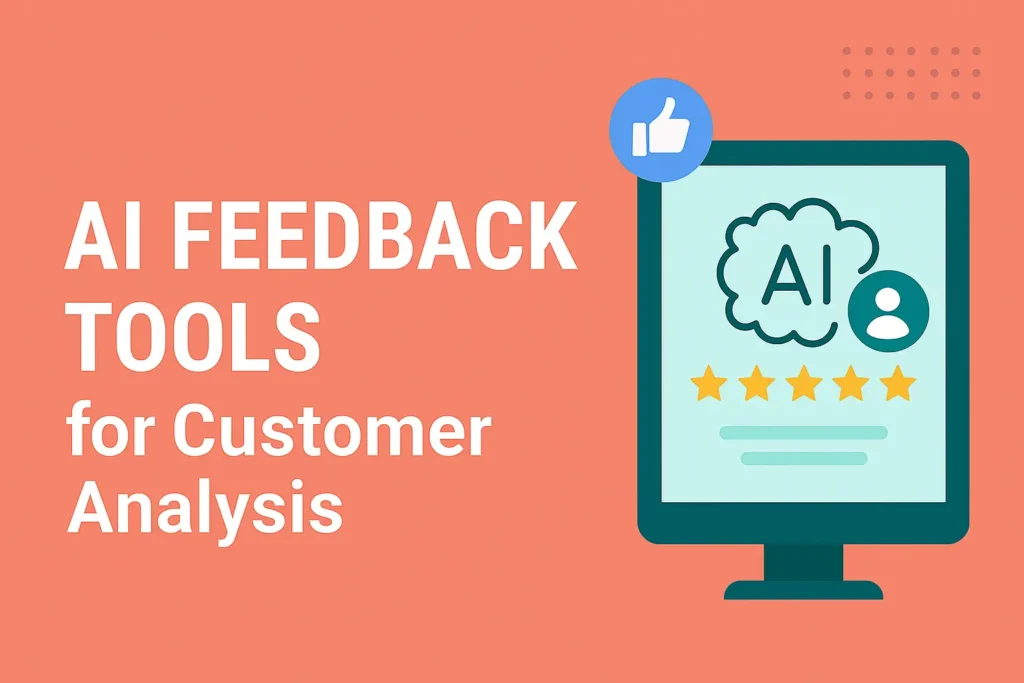Artificial Intelligence is no longer a futuristic concept. It has already become an integral part of academic research. From helping scholars analyze vast datasets to simplifying literature reviews, AI research tools are changing how we pursue knowledge. Whether you are a student, PhD researcher, or academician, using the right data-analysis AI tools can significantly boost productivity, accuracy, and impact.
This blog dives deep into the most effective AI research tools available today, how they enhance academic workflows, and why every researcher should consider integrating them into their process.
Why AI is Transforming Academic Research
Traditional research processes are often time-consuming, repetitive, and complex. Literature reviews can take weeks. Data cleaning and analysis can stretch for months. But AI research tools simplify and automate these processes.
Here’s why AI is revolutionizing academia:
- Speed and Efficiency: AI can scan thousands of research papers in minutes
- Smart Data Analysis: AI-based tools detect patterns, outliers, and trends faster than humans
- Reduced Human Error: Automated AI tools lower the chances of missing critical insights
- Focus on Innovation: Researchers can now focus on interpreting results rather than spending hours on menial tasks
With the rise of data-analysis AI, researchers are experiencing a shift from effort-driven to intelligence-driven outputs.
Best AI Research Tools Every Academic Should Know
Let’s explore the top AI research tools that can accelerate your academic journey. These tools have been selected based on usability, accuracy, popularity among researchers, and overall performance.
1. Scite.ai – Smart Citation Analysis
What it does:
Scite goes beyond counting citations. It tells you how and why a paper is cited. It classifies citations as supporting, contrasting, or mentioning, giving more context to the research.
Why use it:
- Understand the impact of a paper
- See how other researchers build upon or critique your work
- Helps during literature reviews and thesis writing
Keyword Fit: One of the smartest AI research tools for contextual citation analysis.
2. Connected Papers – Visualize Research Topics
What it does:
Connected Papers helps researchers visualize the structure of a particular academic field. It generates a graph of related papers based on a chosen paper.
Why use it:
- Explore relevant literature without digging blindly
- Saves hours of manual research
- Ideal for thesis background work or building a research proposal
Keyword Fit: Excellent AI research tool for mapping out academic landscapes.
3. Semantic Scholar – Smarter Search Results
What it does:
Semantic Scholar is powered by AI and machine learning. It filters millions of research papers using NLP to provide more relevant search results.
Why use it:
- Eliminates noise from traditional databases
- Offers citation context, key phrases, and influential references
- Saves time and improves quality of research discovery
Keyword Fit: A powerful data-analysis AI that refines academic search with intelligent filtering.
4. Elicit by Ought – AI Literature Review Assistant
What it does:
Elicit is an AI-powered research assistant that can answer questions using academic papers. Just type a research question and it returns summaries of related studies.
Why use it:
- Speeds up the literature review process
- Extracts core insights and data points from papers
- Great for forming evidence-based arguments
Keyword Fit: An emerging AI research tool that mimics how academics think and search.
5. Research Rabbit – Interactive Discovery Engine
What it does:
Research Rabbit is like Spotify for research papers. It creates curated tracks of research papers based on your reading preferences.
Why use it:
- Helps find co-authors and collaborator trends
- Explores research networks, not just individual papers
- Easy-to-use visual interface for dynamic exploration
Keyword Fit: Combines data-analysis AI with collaboration discovery for academic communities.
6. ChatGPT and Claude AI – AI for Academic Writing
What it does:
Large language models like ChatGPT and Claude can help write, rephrase, summarize, and structure academic content.
Why use it:
- Assists in generating outlines, paraphrasing, and formatting
- Provides real-time writing suggestions
- Explains difficult concepts in simpler language
Keyword Fit: Versatile AI research tools that support writing, editing, and comprehension.
7. Inciteful – Citation Network Visualization
What it does:
Inciteful builds a citation graph from a single research paper and shows how ideas evolve across disciplines.
Why use it:
- Identify gaps in research
- Discover influential yet under-cited papers
- Ideal for grant applications or identifying niche areas
Keyword Fit: Uses data-analysis AI to decode academic influence in real time.
8. Perplexity AI – Conversational AI for Research
What it does:
Perplexity provides concise answers to research questions using data pulled from verified sources and academic databases.
Why use it:
- Avoids generic web results
- Great for brainstorming and getting quick insights
- Ideal for cross-disciplinary research queries
Keyword Fit: Blends AI research tools with conversational clarity for early-stage research.
The Role of Data-Analysis AI in Modern Research
One of the most game-changing developments is data-analysis AI. Earlier, researchers had to use traditional statistical methods to analyze data. Now, AI can:
- Detect anomalies in large datasets
- Build predictive models
- Visualize complex variables in real-time
- Suggest patterns or correlations that are often missed
For fields like economics, psychology, public policy, and medical research, data-analysis AI is a must-have asset. It not only saves time but also unlocks new research opportunities.
Academic Integrity and AI Ethics
While AI boosts efficiency, it also raises important questions about academic honesty and plagiarism. Researchers must:
- Use AI tools to assist, not replace, critical thinking
- Always cross-verify outputs from generative AI
- Credit AI-generated insights appropriately
- Avoid copy-pasting content without rephrasing or adding context
Maintaining ethical standards while using AI research tools will be key to future-proofing academic careers.
The Future of Research is AI-Augmented
As technology evolves, AI research tools will continue to advance. The next wave of tools may offer real-time peer review suggestions, auto-generated research methodologies, and cross-discipline idea synthesis.
Educational institutions and universities are also integrating data-analysis AI into their curriculum, preparing the next generation of researchers for a future where human intelligence and machine learning go hand in hand.
Final Thoughts
Whether you’re preparing a thesis, conducting a meta-analysis, or writing your first research paper, AI can be your smartest ally. From refining research questions to discovering hidden patterns in data, AI research tools are reshaping how knowledge is created, shared, and built upon.
Start small, explore these tools, and gradually let them become part of your workflow. The right use of data-analysis AI and research intelligence can take your academic work from average to extraordinary.
So, the next time you feel overwhelmed by the size of your research task, remember, with the right AI, you’re never working alone.






